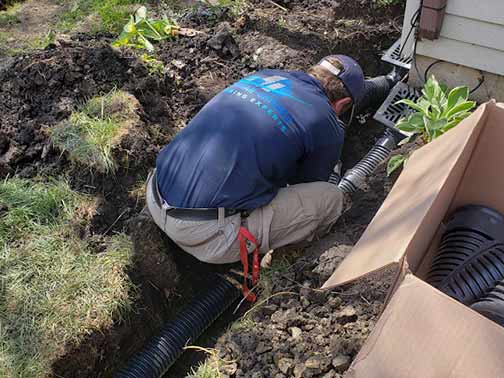
Basement flooding is a prevalent issue faced by many homeowners in Chicago. The unique weather patterns, combined with various structural issues, contribute to this recurring problem. Understanding the causes and learning how to mitigate these risks can help homeowners protect their properties from water damage.
Weather Patterns and Their Impact on Basement Flooding
Chicago’s weather is characterized by heavy rainfall, snowmelt, and occasional storms. These weather patterns play a significant role in basement flooding. During heavy rainfalls, the city’s drainage systems can become overwhelmed, leading to water seeping into basements. Similarly, rapid snowmelt can cause an influx of water, increasing the risk of flooding. Homeowners need to be aware of these weather patterns and take proactive measures to safeguard their basements.
Structural Issues Contributing to Basement Flooding
Several structural issues can contribute to basement flooding in Chicago homes. Poorly designed or damaged drainage systems, foundation cracks, and improper grading are some of the common culprits. Inadequate drainage systems fail to channel water away from the foundation, leading to water accumulation around the basement. Foundation cracks provide an entry point for water, while improper grading can cause water to flow towards the house instead of away from it.
Identifying and Addressing Poor Drainage Systems
Identifying a poor drainage system is crucial for preventing basement flooding. Homeowners should regularly inspect their gutters, downspouts, and drainage pipes to ensure they are functioning correctly. Clogged or damaged gutters can cause water to overflow and accumulate around the foundation. Installing gutter guards and cleaning gutters regularly can help maintain an effective drainage system. Additionally, extending downspouts away from the house and ensuring proper slope around the foundation can prevent water from pooling near the basement.
Repairing Foundation Cracks to Prevent Water Ingress
Foundation cracks are a common entry point for water into basements. Homeowners should inspect their foundations for any visible cracks and promptly repair them to prevent water ingress. There are various methods for repairing foundation cracks, including epoxy injections, polyurethane foam, and hydraulic cement. Contacting a professional contractor can help determine the best repair method based on the severity and location of the cracks.
Improving Grading Around the Home
Proper grading is essential for directing water away from the house. Homeowners should ensure that the ground slopes away from the foundation to prevent water from flowing towards the basement. This can be achieved by adding soil around the foundation and creating a gentle slope. Additionally, installing a French drain system can help channel water away from the house, reducing the risk of basement flooding.

Exterior drainage systems, like French drains, prevent water from reaching the foundation in the first place.
Installing a Sump Pump System
A sump pump system is an effective solution for preventing basement flooding. Sump pumps are designed to collect and pump out water that accumulates in the basement. Installing a sump pump system involves creating a sump pit and placing the pump inside it. The pump is then connected to a discharge pipe that directs water away from the house. Regular maintenance of the sump pump system, including cleaning the pump, is essential to ensure its proper functioning.
Waterproofing the Basement
Waterproofing the basement is another crucial step in preventing flooding. This involves applying waterproof coatings or sealants to the basement walls and floors to create a barrier against water. Additionally, installing interior and exterior drainage systems can help manage water infiltration. Interior drainage systems, such as drainage tiles or baseboard systems, collect water and channel it to a sump pump. Exterior drainage systems, like French drains, prevent water from reaching the foundation in the first place.
Regular Maintenance and Inspections
Regular maintenance and inspections are vital for preventing basement flooding. Homeowners should conduct routine checks of their drainage systems, foundation, and basement for any signs of water damage or potential issues. Addressing problems early can prevent them from escalating and causing significant damage. Additionally, scheduling professional inspections can help identify hidden issues that may not be visible during routine checks.
Conclusion: Taking Proactive Measures to Protect Your Basement
Basement flooding in Chicago homes can be a challenging issue, but understanding the causes and taking proactive measures can significantly reduce the risk. By addressing weather-related factors, improving drainage systems, repairing foundation cracks, and waterproofing the basement, homeowners can protect their properties from water damage. Regular maintenance and inspections further ensure the longevity and effectiveness of these preventive measures. By staying vigilant and proactive, homeowners can safeguard their basements and enjoy a dry, safe living environment.


